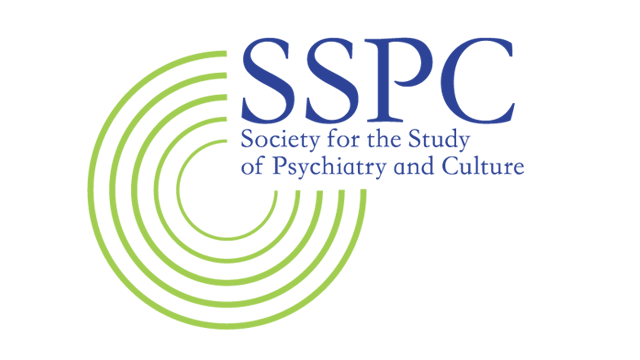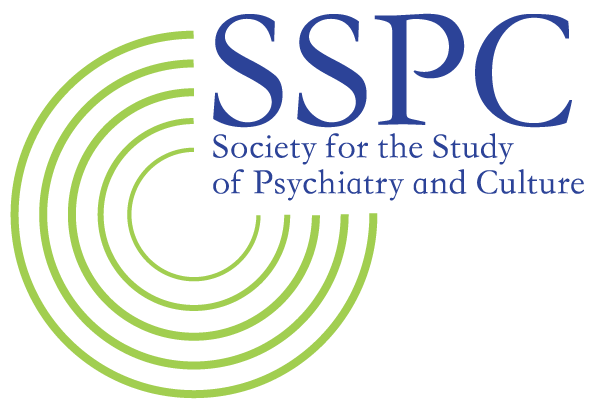


Professional Risk Management Services, Inc., Corporate Sponsor
Omni Providence Hotel
| Conference Fees |
SSPC Members/ |
Single Day Admission |
| Physicians* |
$800 |
$300 |
| Non-physician Professionals* |
$650 |
$250 |
| Trainees |
$450 |
$175 |
| Accompanying Persons |
$500 |
$200 |
Above fees include daily breakfast, all lunches, break refreshments, syllabus and opening night reception.
*Please add $50 for CME credit.
Please note that the room block at the Omni Providence has sold out.
As of 3/29/15, the Courtyard Providence Downtown (a 2-minute walk from the Omni) had rooms available on the nights of April 23rd through 25th. To book a room at the Courtyard, please visit their website.
There is no additional cost to attend these workshops, but pre-registration is required and enrollment is limited.
To enroll, please e-mail Liz.
Day 1, Thursday, April 23, 2015
| Time | Title | Speaker/Facilitator |
| 7:30 – 8:30 | Continental Breakfast and Registration | |
| 8:30 – 8:45 | SSPC Welcome | |
| 8:45 – 9:15 | NIMH Welcome | Pamela Collins |
| 9:15 – 11:15 | Plenary Panel 1
Cultural Challenges and Opportunities Experienced by Clinicians and Practitioners in Global Mental Health |
J. Reginald Fils-Aimé Oye Gureje Vasudeo Paralikar Kathleen Pike |
Moderator: Hendry Ton11:15 – 11:30Break11:30 – 12:30
Charles Hughes Memorial Lecture
Culture in Context: Evaluating the Utility of the Cultural Formulation Interview (CFI) in Mexican Mental Health Patients
Alyssa Ramírez-Stege
Moderator: Brandon Kohrt
Discussant: Joan Koss
12:30 – 1:30Lunch1:30 – 3:30
Workshop 1: Cultural Adaptation of Psychotherapeutic Interventions
Learning Objectives
- Identify cultural assumptions underlying common forms of psychotherapy and sociocultural issues in conducting therapy.
- Describe strategies for developing and adapting interventions for different populations.
- Describe specific examples of cultural adaptations of evidence-based psychotherapies.
Abstract
Proposition and Discussion: For this workshop, we will give brief descriptions of our experience in culturally adapting psychological interventions, including Cognitive Behavioral Therapy, Interpersonal Psychotherapy, and Acceptance and Commitment Therapy. We will then engage participants to:
- reflect on the underlying cultural assumptions in the philosophical and theoretical underpinnings of their particular psychological modality;
- identify sociocultural factors on the technical and practical aspects of conducting cross-cultural psychotherapy; and
- formulate a process for culturally adapting standard psychotherapies. Small group discussions on particular clinical vignettes will be employed to ground these discussions.
Implications: Reflecting through a cultural lens, we can increase our effectiveness in working with diverse populations and gain deeper insight about our psychological interventions.
Kenneth Fung
Kwame McKenzie
Muhammad Irfan
Farooq Naeem
Shanaya Rathrod
Lisa AndermannSymposium 1: Global Mental Health and CultureSamuel Okpaku
Robert Kohn
Duncan Pedersen
Mary Kay Smith
Moderator/Discussant: Helena HansenSymposium 2: Methods in Global Mental HealthEmily Haroz
Vasudeo Paralikar
Ankita Deshmuk
Moderator/Discussant: Nuwan Jayawickreme3:30 – 3:45Break3:45 – 5:45
Workshop 2: Ensuring Cultural Relevance & Sensitivity in the Development of ICD-11
Learning Objectives
- To describe the diverse approaches to developing missions for global mental health training programs
- To describe innovative solutions for challenges related to working in low-resource settings
- To describe contributions of global mental health training to general practice of mental health care
Abstract
Kathleen Pike
Discussant: Sergio Villaseñor-Bayardo
Symposium 3: Impact of Context on Mental IllnessJustin LaCasse
Matityahu Angel
Victor Puac-Polanco
Moderator/Discussant: Grace AkelloSymposium 4: Balancing Global-Local Approaches in GMHSumeet Jain
Rima Ghosh
Jordan Sloshower
Shubah Ranganathan
Moderator/Discussant: Dörte Bemme6:00 – 8:00Reception
Day 2, Friday, April 24, 2015
| Time | Title | Speaker/Facilitator |
| 8:30 – 10:30 | Plenary Panel 2
Organizations and Funders Working in Global Mental Health |
Jorge Rodríguez Rima Ghosh Giuseppe Raviola Wietse TolModerator: Pamela Collins |
| 10:30 – 10:45 | Break | |
| 10:45 – 11:45 | John Spiegel Memorial Lecture
Structural Violence and Common Mental Disorders in Women: A Rural Community Survey in India |
Minoo Ramanathan
Moderator: Robert Kohn Discussant: Madelyn Hsiao-Rei Hicks |
| 11:45 – 12:30 | Lunch | |
| 12:30 – 1:00 | Business Meeting | |
| 1:00 – 3:00 | Workshop 3: Design, Curriculum & Implementation of Training Programs in Global Mental Health Learning Objectives
AbstractThe World Health Organization (WHO) is mandated by international charter to develop and maintain the classification system that categorizes all health conditions, including mental and behavioral health. This classification system, “The International Classification of Diseases” (ICD), is utilized by the 194 members states of WHO. This workshop will provide an overview of the ICD-11 development with a focus on the methodological aspects that have been incorporated in the process to maximize cultural relevance and sensitivity of the ICD-11. Guided by the overarching principle of clinical utility, the ICD-11 development has engaged clinicians from around the globe throughout the process such that cultural considerations have been integral to each step. The workshop will highlight examples of diagnostic categories where cultural issues have been of particular concern. We will discuss with and gather input from participants on the planned strategies to maximize cultural relevance and sensitivity in the final stage of development of the ICD-11 guidelines.
|
James Griffith Craig Katz Brandon Kohrt Carla Marienfeld Alexander Tsai Milton Wainberg |
| Symposium 5: What Kind of Cultural Psychiatry for Africa | Ademola Adeponle Oye Gureje Laurence Kirmayer Lonzozou Kpanake |
|
Moderator: Laurence Kirmayer
Discussant: Vivian DzokotoSymposium 6: Value of Qualitative Approaches to Understanding Cultural ContextMatthew Burkey
Melanie Medeiros
Ingrid Waldron
Joe Westermeyer
Moderator/Discussant: Bonnie Kaiser3:00 – 3:15Break3:15 – 5:15
Workshop 4: Cross-Cultural Instrument Development and Adaptation
Learning Objectives
- To discuss limitations in WHO guidelines for translation—back-translation of assessment instruments when conducting global mental health research
- To describe transcultural translation processes and alternative strategies to clinical validation
- To describe the influence of culture on response style and reference group bias
Abstract
Nuwan Jayawickreme
Brandon Kohrt
Bonnie Kaiser
Andrew Rasmussen
Amber WutichSymposium 7: Closing the Mental Health Gap in BrazilRobert Kohn
Jair Jesus Mari
Euripides C Miguel
Moderator: Maria Mancebo
Discussant: Cristiane DuarteSymposium 8: Power Dynamics Affecting Mental Health Diagnosis and TreatmentEllen Rubinstein
Yi-Cheng Wu
Zhiying Ma
Moderator/Discussant: Artha Gillis5:15 – 6:30Poster Session
Day 3, Saturday, April 25, 2015
| Time | Title | Speaker/Facilitator |
| 8:30 – 10:30 | Plenary Panel 3
Social Science Contributions to Global Mental Health |
Grace Akello Mary Jo Delvecchio-Good Byron Good Bernice Pescosolido |
Moderator: Roberto Lewis-Fernández10:30 – 10:45Break10:45 – 12:15
Workshop 5: Ikebana and Wellbeing
Learning Objectives
- Participants will be able to describe the sense of well being that can be experienced through engaging with the ancient discipline of ikebana and its traditions.
- Participants will be able to discuss how Japanese/Chinese notions of wellbeing and distress, linked to self awareness and personal discipline, harmony between self and others, can be linked to recovery from personal pain and distress.
- Participants will be able to use these ideas in clinical practice with clients and families.
Abstract
Proposition: Following a presentation of principles of Ikebana, and a demonstration which contrasts Eastern and Western art forms and structural differences, the author will demonstrate making a morimono, a dried arrangement without water.
Participants will then be asked to consider an idea, eg a dream, or memory, they would like to use. They will then create a basic design on a flat base, using a branch which occupies only one third of the space on the base. Different items to support the design will then be added, including fruits and vegetables, a few flowers.
Participants will then share their reflections on the experience with the group.
Implications: Participants will have a better appreciation of how other traditions can promote a sense of well being.
Annie Lau
Workshop 6: The EXPONATE Project: Engaging Culture in Collaborative Global Mental Health Research
Learning Objectives
- Identify some of the challenges to implementation research and clinical trials in GMH.
- Recognize useful strategies for international collaboration and capacity building in GMH research.
- Discuss approaches to mixed-methods research in GMH integrating ethnographic and illness narrative methods
Abstract
Methods: Participants will describe the rationale, implementation, and dilemmas raised in the three step mixed-methods approach. The initial phases of the research involved collecting information on local idioms of distress and help-seeking by both qualitative and quantitative methods, including the McGill Illness Narrative Interview (MINI). Later steps involved training local research assistants in complex developmental assessment techniques.
Results: Complex issues were raised at each stage of the project. Participants will discuss organizational issues, dilemmas in interpreting qualitative data on explanatory models, training lay workers to conduct developmental assessments, and dealing with cultural differences in norms that may affect instrument validity.
Implications: While mixed-methods approaches hold much promise for GMH research, there are many challenges in culturally adapting and implementing both measures and interventions.
Ademola Aneponle
Neda Faregh
Oye Gureje
Danielle Groleau
Phyllis Zelkowitz
Moderator: Laurence Kirmayer
Discussant: Vivian DzokotoSymposium 9: Improving Engagement of Ethnic & Racial Minorities thru Integrated CareAlbert Yeung
Justin Chen
Nhi-Ha Trinh
Trina Chang
Moderator/Discussant: Shannon Suo12:15 – 1:15Lunch 1:15 – 3:15Symposium 10: Incorporating Local Understandings of Illness and Wellness in Mental Health TreatmentKhameer Kidia
Albert Yeung
Darius Gishoma
Moderator/Discussant: Devon HintonSymposium 11: Treatment of Asylum Seekers and RefugeesJames Boehnlein
J. David Kinzie
Madhuri Shors
Moderator/Discussant: James GriffithSymposium 12: Training Approaches in Global Mental HealthAjeng Puspitasari
Martha J. Bojko
Auralyd Padilla
Moderator/Discussant: Brandon Kohrt
Accreditation Information
This activity has been planned and implemented in accordance with the accreditation requirements and policies of the Accreditation Council for Continuing Medical Education (ACCME) through the joint providership of the Warren Alpert Medical School of Brown University and the Society for the Study of Psychiatry and Culture. The Warren Alpert Medical School of Brown University is accredited by the ACCME to provide continuing medical education for physicians.
Credit Designation
Physicians: The Warren Alpert Medical School of Brown University designates this live activity for a maximum of 19.5 AMA PRA Category 1 Credits TM. Physicians should claim only the credit commensurate with the extent of their participation in the activity.
Psychologists: The Alpert Medical School of Brown University has been approved by the Rhode Island Psychological Association to offer continuing education credits for Psychologists. The Warren Alpert Medical School of Brown University maintains responsibility for the program. The program is approved for 19.5 Category 1 CE Credits. (Credits available to RI licensed psychologists only.)
A highlight of the conference was a half-day workshop specifically for residents that included a panel discussion of transference and countertransference issues in crosscultural settings, and case supervision with leaders in cultural psychiatry training. The participation of both case supervisors and residents was outstanding, with many sharing very touching and vulnerable cultural experiences.
I enjoyed having breakfast and lunch together each day as this facilitated networking between attendees and dramatically increased the value of this meeting. I found everyone from trainees at other institutions to members of the Board of Directors very approachable.
I had a positive experience through the many opportunities to learn, network and bond over meals and social gatherings. I’ll definitely attend the meeting in 2015 in Providence. I hope to meet more trainees (and experts) there!

